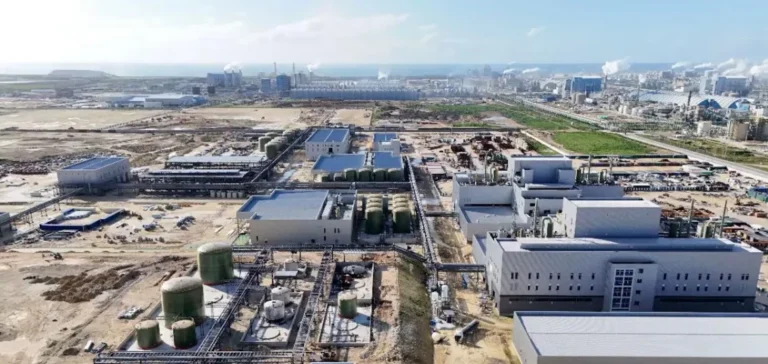Chinese group Gotion High-Tech plans to invest $5.6bn in a large-scale battery factory in Kénitra, northern Morocco. The plant, scheduled to be operational by the third quarter of 2026, aims to produce up to 100 gigawatt-hours (GWh) of batteries annually, equivalent to the energy storage needed for nearly two million electric vehicles. It marks one of the country’s most significant industrial projects since the launch of its national energy strategy to expand renewable energy.
High energy demand clashes with fossil-based power mix
The construction of this gigafactory comes at a time when Morocco remains heavily reliant on fossil fuels. In 2023, around 28 terawatt-hours (TWh) out of a total of 43 TWh of electricity generated came from coal, representing nearly two-thirds of total output, according to the Moroccan-German Energy Partnership. Natural gas is also a major contributor to the country’s energy mix, limiting Morocco’s ability to supply low-carbon energy to its new industries.
Battery production, especially lithium-ion, is known for its high energy intensity. The International Energy Agency (IEA) estimates that between 50 and 65 kilowatt-hours (kWh) are needed to produce a single kilowatt-hour of battery capacity. At full capacity, Gotion High-Tech’s plant could consume several TWh annually, a significant share of Morocco’s current electricity output.
A project integrated into a growing automotive ecosystem
The facility is expected to supply automakers already operating in the country, including Renault and Stellantis, while targeting European and Middle Eastern markets. It will also integrate production of key components such as anodes and cathodes, reinforcing local value chains. Morocco, which exported over $14bn worth of vehicles in 2023 according to the Office des changes, is reinforcing its position as a regional industrial platform.
Additionally, the project comes amid tighter regulatory conditions. The European Battery Regulation (EU 2023/1542), effective since August 2025, requires manufacturers to comply with strict sustainability and traceability standards. The carbon footprint of battery production in fossil-fuel-heavy countries could affect future trade relations with the European Union.
Strategic ambition amid structural limits
Morocco is targeting 52% of installed renewable energy capacity by 2030, as outlined in its national energy strategy. In 2023, renewables — including solar, wind and hydro — accounted for 37 to 40% of electricity production, according to the Ministry of Energy Transition and the International Renewable Energy Agency (IRENA). However, this progress remains insufficient in the short term to meet the needs of an energy-intensive sector such as battery manufacturing.
The commissioning of the Kénitra gigafactory represents a major industrial step forward, but also raises questions about whether the current power capacity can support the country’s growing industrial ambitions.





















